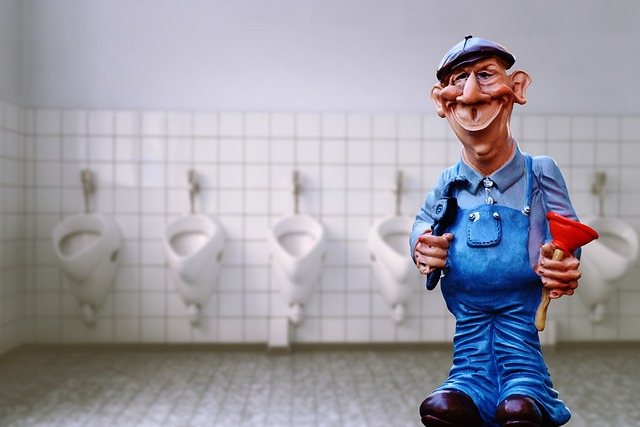Homeowners can handle minor plumbing issues like leaky faucets and clogged drains using DIY methods and online guides, but complex problems like broken pipes or severe clogs require professional plumbers with specialized tools and expertise. Recognizing the distinction between DIY-suitable tasks and those needing expert intervention is crucial for effective and safe plumbing management, avoiding potential disasters and ensuring long-lasting solutions.
Are you a DIY enthusiast or should you leave plumbing repairs to the pros? This guide helps you navigate the DIY vs. professional plumber debate. We break down common plumbing issues, from leaky faucets and clogged drains to low water pressure, assessing which you can tackle yourself and when it’s time to call in a specialist. Learn about the benefits of professional intervention, including expert knowledge, specialized tools, and preventing further damage. Make informed decisions based on clear factors and signs indicating when to trust a plumber.
- Assessing the Plumbing Issue: What You Can Do Yourself
- – Identifying simple, do-it-yourself (DIY) plumbing tasks
- – Common problems like leaky faucets, clogged drains, and low water pressure
Assessing the Plumbing Issue: What You Can Do Yourself

When it comes to assessing a plumbing issue, there are certain tasks that can be tackled by homeowners who are comfortable with DIY projects. Start by identifying the problem: is it a leaky faucet, a clogged drain, or a burst pipe? For simple issues like a dripping tap or a minor clog, attempting a fix yourself can save time and money. There are numerous online resources and how-to videos available that guide you through these basic repairs.
Kitty litter, baking soda, and vinegar are just a few common household items that can be used to unclog drains. Fixing a leaky faucet might involve replacing an O-ring or washer, which is often a straightforward process. However, for more complex problems like broken pipes, damaged water heaters, or severe clogs, it’s best to call in a professional plumber. DIY plumbing can only go so far, and some issues require specialized tools and expertise to resolve safely and effectively.
– Identifying simple, do-it-yourself (DIY) plumbing tasks

Plumbing issues can range from minor inconveniences to major crises. Before deciding whether to tackle a problem yourself or call in a professional, it’s helpful to understand your capabilities. Many routine plumbing tasks can be successfully completed by DIY enthusiasts. This includes unclogging drains using a snake or plunger, fixing leaky faucets with simple parts replacement, and installing appliances like dishwashers or toilets if you have the necessary tools and basic knowledge. These projects often involve straightforward repairs that don’t require complex tools or specialized skills.
On the other hand, complex plumbing issues, such as repiping, sewer line repairs, or water heater installations, are best left to professionals. These tasks demand expert knowledge, specific tools, and adherence to safety standards. Professionals also have access to high-quality parts that extend the lifespan of your plumbing system. When in doubt, consider the scope of the problem: if it involves major components, unusual circumstances, or potential safety hazards, it’s usually best to call a plumber rather than attempt a DIY solution.
– Common problems like leaky faucets, clogged drains, and low water pressure

Many common plumbing issues can be either tackled head-on as a do-it-yourself (DIY) project or left to the expertise of professional plumbers. Leaky faucets, for instance, are often easily fixable with some basic tools and a little know-how. Many homeowners feel confident enough to handle this themselves, saving money in the process. Similarly, unclogging drains and addressing low water pressure are tasks that can usually be accomplished without professional help. These tasks often involve simple techniques like using a plumber’s snake or adjusting aerators to restore proper flow.
However, it’s essential to recognize when DIY efforts might fall short. More complex problems, such as severe pipe damage, mysterious water heating issues, or consistent clogs that persist despite home remedies, are signs that professional plumbing expertise is required. Professional plumbers possess specialized tools and in-depth knowledge to diagnose and fix intricate issues effectively. Opting for their services ensures a swift resolution and prevents further damage from occurring.
When it comes to plumbing repairs, knowing when to take on a project yourself or call in the professionals is essential. While DIY plumbing can be satisfying for simple issues like leaky faucets or clogged drains, more complex problems may require the expertise of a licensed plumber. Understanding your abilities and the scope of the repair will help you make an informed decision, ensuring your plumbing system is addressed effectively, whether by your own hands or a qualified pro.
